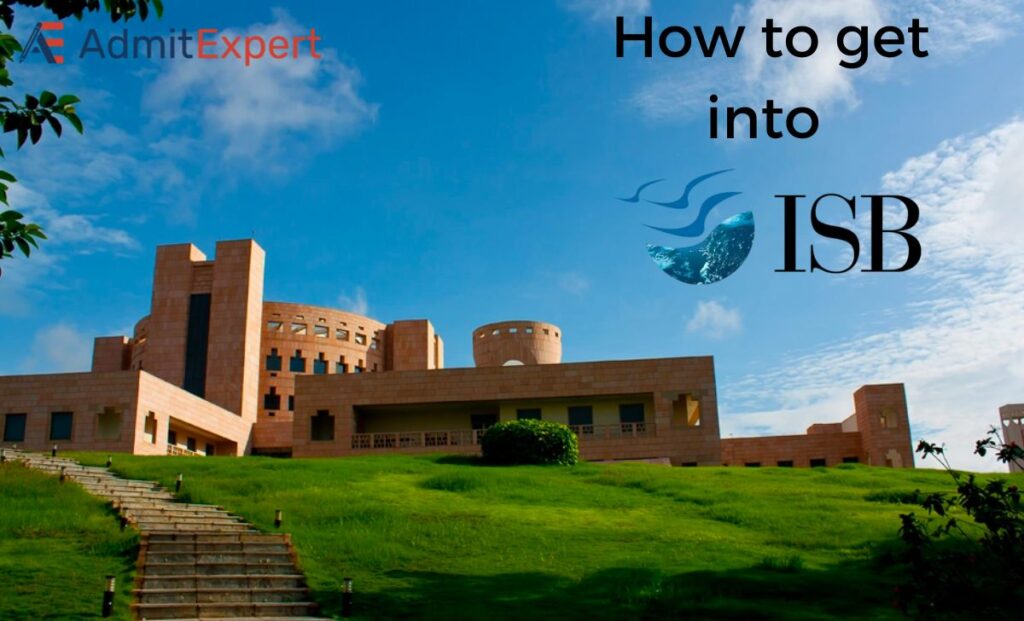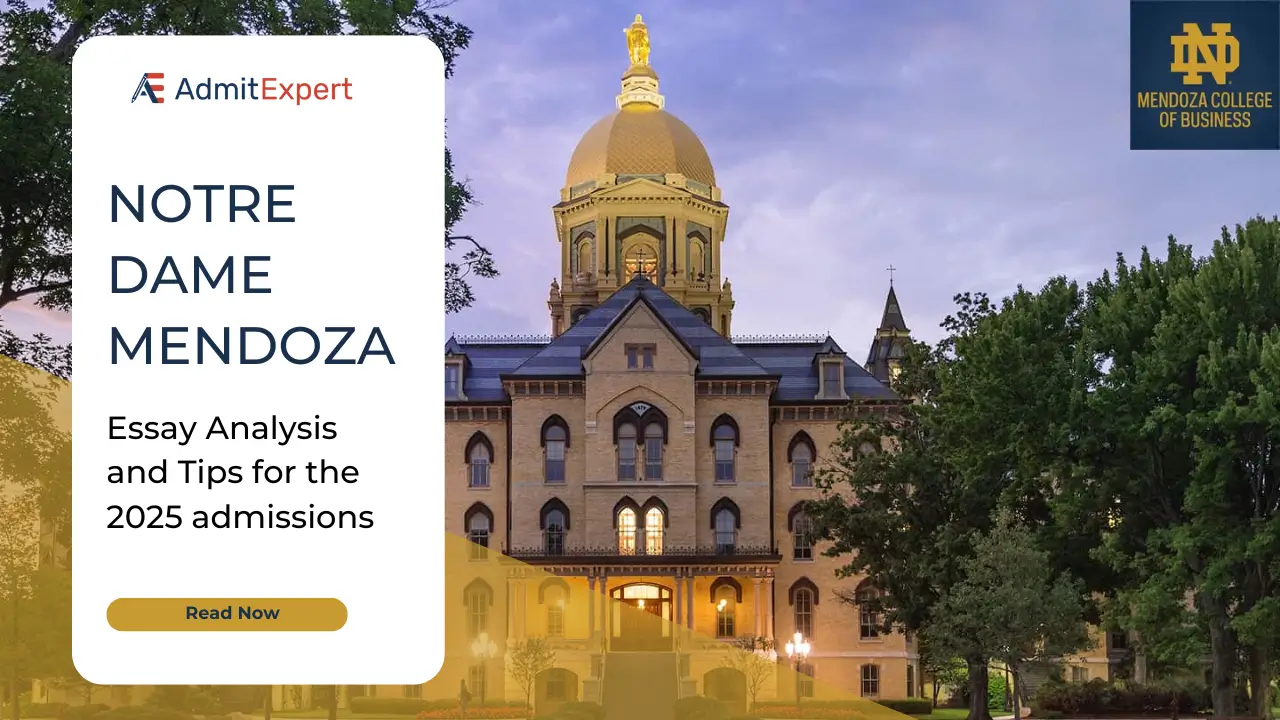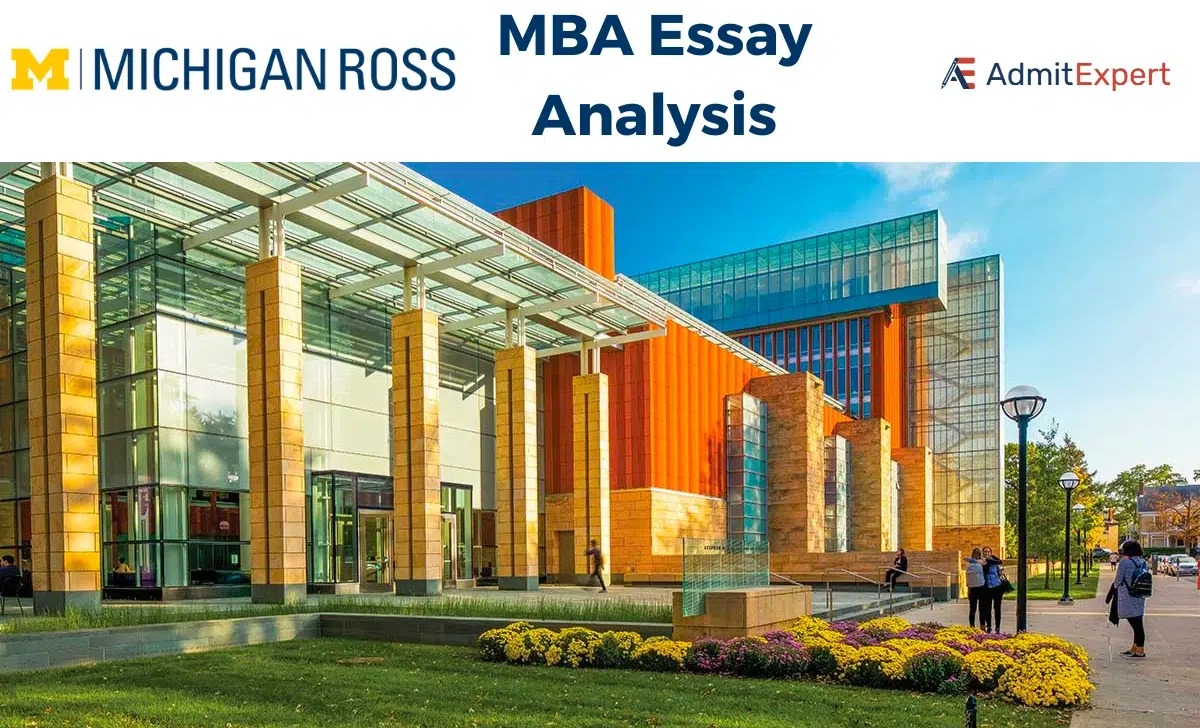Getting into the prestigious Indian School of Business (ISB) can be a transformative opportunity for your career and personal growth. However, the admissions process can be competitive and rigorous.
In this article, we present a comprehensive 7-step guide to getting into ISB (Indian School of Business) and increase your chances of securing admission. From academic requirements to application strategies, we will provide you with valuable insights and practical tips to help you stand out as a strong candidate.

7 Steps: How to get into Indian School of Business
These 7 steps summarises the entire process of getting into ISB:
- Understand the requirements
- Find your reasons for pursuing an MBA from ISB (Introspect)
- Research the ISB class profile and Post Graduate Programme
- Prepare and ace the GMAT or the GRE
- Obtain good letters of recommendation
- Write compelling essays for ISB admissions
- Prepare for the ISB Interview
Let’s know about each of these 7 steps in detail.
Step 1: Understand the eligibility
To meet the eligibility criteria for the ISB PGP program, you must satisfy three criteria:
- Hold a bachelor’s degree or its equivalent.
- Obtain a valid GMAT/GRE score.
- Possess a minimum of 24 months of full-time work experience.
Step 2: Find your reasons for pursuing an MBA from ISB
When introspecting the need to pursue an MBA from the Indian School of Business (ISB), it is essential to reflect on several key aspects.
Here is a brief summary of the points to consider:
- Career Goals: Evaluate your current career trajectory and determine how an MBA from ISB aligns with your long-term professional aspirations. Consider the knowledge, skills, and network that an MBA can provide to help you achieve your career goals.
- Skill Enhancement: Assess the specific skills and expertise you aim to develop through an MBA program. Analyze the gaps in your current skill set and determine how ISB’s curriculum and learning environment can equip you with the necessary tools to excel in your desired field.
- Network and Connections: Recognize the importance of building a strong professional network. Reflect on how an MBA from ISB can connect you with a diverse group of talented individuals, including classmates, alumni, faculty, and industry professionals. Consider the potential networking opportunities and the value they can add to your career.
- Industry Exposure: Evaluate the opportunities an MBA from ISB can provide to gain exposure to various industries and sectors. Research the school’s corporate connections, internships, and industry collaborations to determine how these experiences can broaden your understanding of different business environments and enhance your career prospects.
- Personal Development: Introspect on how pursuing an MBA from ISB can contribute to your personal growth and transformation. Consider the opportunities to develop leadership skills, critical thinking abilities, and the ability to navigate complex business challenges. Reflect on how these personal qualities can benefit your career and contribute to your overall development.
- Return on Investment: Assess the financial investment required for an MBA program and weigh it against the potential returns. Consider the reputation and standing of ISB in the business world, the average salary and career progression of its graduates, and the potential for career advancement and higher earning potential post-MBA.
Remember, introspecting the need to pursue an MBA from ISB is a deeply personal process. It requires self-reflection, careful consideration of your goals and aspirations and an evaluation of how ISB can support your journey towards professional success and personal fulfillment.
Step 3: Research the ISB class profile and Post Graduate Programme
Start by thoroughly researching the ISB to understand its values, programs, curriculum, and admission requirements. Explore the official ISB website, read about the faculty, review the courses offered, and learn about the school’s culture. This knowledge will help you align your application with ISB’s expectations.
Also, research the latest class profile to understand where you stand compared to those who made it to ISB.
Diversity is a notable aspect of the Indian School of Business (ISB), where each class consists of candidates from various age groups, different levels of work experience, diverse professional backgrounds, and different geographic locations.
Let’s examine the class profile of the PGP class of 2023 for a better understanding:
- Class size: 843 students
- Gender diversity:
- 63% male
- 37% female
- Work experience:
- 0 – 3 years: 211 candidates
- 3 – 5 years: 358 candidates
- 5 – 8 years: 224 candidates
- 8 years and above: 50 candidates
- Average GMAT: 720
- Average GRE: 328
This data provides valuable insights into the uniqueness of your profile. For example, it offers information about the average age of the class, the gender ratio, the expected GMAT score for ISB, the desired level of work experience, and the significance of your academic background.
Importantly, the class profile represents the specific expectations of the ISB Admissions Committee. All admitted applicants have met these expectations. However, understanding the class composition is only the initial step in conducting thorough research. Further exploration is necessary, which brings us to the next phase.
This information aligns with the content published on the ISB official website in the blog post titled “How can the diversity at ISB add new dimensions to your career?” The article emphasizes three key points for prospective applicants to consider:
- Expect the unexpected.
- Embrace the tremendous learning opportunities that arise from a diverse environment.
- Recognize that potential is more crucial than past achievements.
By acknowledging these insights, applicants can gain a deeper understanding of the value of diversity at ISB and how it can positively impact their career trajectory.
Step 4: Prepare and ace the GMAT or the GRE
Take the Graduate Management Admission Test (GMAT) or the Graduate Record Examination (GRE) to meet the standardized test requirement. Your goal should be to score higher than the average GMAT/GRE scores of the latest incoming class. For example, considering the GMAT/GRE scores of class of 2023, you should aim to score at least 720 on the GMAT or 328 on the GRE. But, why is scoring high on the GMAT/GRE is important for ISB admissions?
Scoring high on the GMAT/GRE is important for ISB PGP admissions for several reasons:
- Competitiveness: ISB is a highly reputable business school with a competitive admissions process. Achieving a high GMAT/GRE score showcases your academic ability and places you in a more competitive position among other applicants.
- Demonstrated Aptitude: A high GMAT/GRE score demonstrates your aptitude for the rigorous academic curriculum at ISB. It indicates your ability to handle the coursework and challenges of the PGP program, giving the admissions committee confidence in your academic preparedness.
- Scholarship Opportunities: ISB offers various scholarships and financial aid options to deserving candidates. Scoring high on the GMAT/GRE increases your chances of securing scholarships, which can significantly offset the cost of your education and make attending ISB more affordable.
- Class Profile: ISB aims to create a diverse and accomplished class profile. By scoring high on the GMAT/GRE, you contribute to the overall academic excellence of the incoming class. Admissions committees often consider standardized test scores when selecting candidates who can positively impact the learning environment and contribute to class discussions.
Step 5: Obtain good letters of recommendation
Secure strong letters of recommendation from individuals who can vouch for your skills, accomplishments, and potential. Choose recommenders who know you well, preferably from professional or academic settings. Provide them with the necessary information and time to write detailed and persuasive recommendations.
Obtaining letters of recommendation is a crucial element of the ISB admissions process for the following reasons:
- Validation of Your Qualities: Letters of recommendation provide an external perspective on your abilities, achievements, and potential. They serve as validation of your skills, work ethic, leadership qualities, and academic capabilities. Recommenders who have worked closely with you can provide valuable insights and credibility to support your application.
- Assessing Fit with ISB: Admissions committees evaluate your letters of recommendation to assess your fit with ISB’s values, culture, and learning environment. Strong recommendations can highlight how your experiences, strengths, and aspirations align with what ISB offers, demonstrating that you are a suitable candidate for the program.
- Differentiated Perspective: Recommendations offer a differentiated perspective by presenting your qualities through the lens of individuals who have observed your performance firsthand. They can provide unique insights into your character, collaboration skills, adaptability, and potential for growth, which may not be apparent from other parts of your application.
Step 6: Write compelling essays for ISB admissions
ISB requires applicants to submit an essay that reflects their personality, goals, and reasons for pursuing management education. Take the time to brainstorm ideas, write multiple drafts, and seek feedback from mentors or friends. Your essay should effectively convey your unique qualities and highlight how ISB aligns with your aspirations.
ISB asks applicants to submit 2 essays. Here is a framework to help you write a compelling ISB essay.
Writing a compelling essay for ISB admissions is important for five reasons:
- Differentiation: The essay allows you to differentiate yourself from other applicants. It provides an opportunity to showcase your unique experiences, achievements, and aspirations that may not be captured in other parts of the application. A compelling essay helps you stand out and leaves a lasting impression on the admissions committee.
- Personal Storytelling: The essay allows you to tell your personal story and provide insights into your background, values, and motivations. It gives the admissions committee a deeper understanding of who you are as an individual, your journey, and the factors that have shaped your decision to pursue an MBA at ISB. Sharing your story can create an emotional connection and make your application memorable.
- Demonstrating Self-Awareness: A well-written essay reflects self-awareness and introspection. It requires you to critically assess your strengths, weaknesses, and areas for growth. By articulating your self-awareness and showing a clear understanding of your goals, you demonstrate your ability to reflect, learn, and make informed decisions about your career path.
- Fit with ISB: The essay is an opportunity to demonstrate your fit with ISB’s values, culture, and learning environment. By researching and understanding ISB’s unique features, such as its teaching methods, curriculum, and extracurricular activities, you can align your aspirations and interests with what ISB offers. This alignment showcases your enthusiasm for the program and your potential contribution to the ISB community.
- Communication and Writing Skills: Writing a compelling essay showcases your communication and writing skills, which are crucial for success in the business world. It demonstrates your ability to articulate your thoughts clearly, organize your ideas effectively, and present a coherent argument. These skills are essential for academic success, professional interactions, and future leadership roles.
Step 7: Prepare for the ISB Interview
If your application is shortlisted, you will be invited for an interview. Research commonly asked interview questions and practice your responses. Be prepared to discuss your background, achievements, goals, and reasons for choosing ISB. Dress professionally and demonstrate confidence, clarity, and passion during the interview.
Here are some steps to help you prepare effectively:
- Research ISB: Gain in-depth knowledge about ISB’s curriculum, faculty, clubs, events, and any recent developments. Understand the program’s structure, learning environment, and core values. Research the school’s alumni network, industry connections, and career placement statistics. This knowledge will enable you to articulate why ISB is the right fit for your aspirations.
- Interview Format: The ISB interview is typically conducted by a panel that may consist of admissions committee members, alumni, or current students. The interview format can vary, but it generally includes a mix of behavioral questions, situational questions, and questions specific to your background and goals. It is essential to be prepared to discuss your experiences, achievements, strengths, weaknesses, and career aspirations.
- Mock Interviews: Practice mock interviews with friends, family, or mentors. Use the STAR (Situation, Task, Action, Result) method to structure your answers. Record or video the sessions to evaluate your performance, body language, and communication skills. Seek feedback on areas where you can improve and refine your responses.
- Prepare for Common Questions: Anticipate and prepare for common interview questions. These may include questions about your background, motivation for pursuing an MBA, leadership experiences, teamwork, challenges faced, and future career goals. Develop concise and compelling responses, emphasizing relevant examples and achievements.
- Be Familiar with Your Application: Revisit your application materials, including essays, recommendations, and resume. Be prepared to elaborate on the details provided and provide further context or examples related to your experiences and achievements.
Remember, preparation is key to performing well in the interview. Practice, research, and self-reflection will help you present yourself effectively and confidently during the ISB interview.
Final Thoughts
Getting into the Indian School of Business (ISB) requires careful planning, preparation, and a strong commitment to excellence. By following the 7-step guide outlined in this article, you can navigate the admissions process with confidence and increase your chances of securing a coveted spot at ISB. Remember, it’s not just about meeting the eligibility criteria, but also showcasing your unique strengths, experiences, and potential to contribute to the ISB community. With dedication and a strategic approach, you can position yourself as a strong candidate for admission and embark on a transformative journey toward a successful MBA career.




